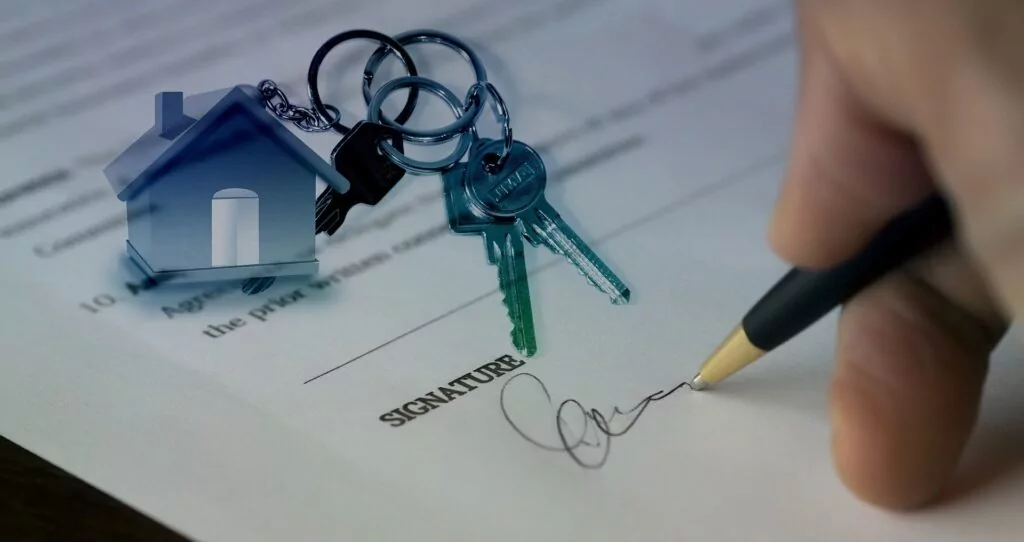Are you dreaming of a perfect home but don't know where to start looking? Worry not - our house hunting tips from top realtor Tim Stout will help you buy a house while avoiding the most common mistakes. The buying process doesn't have to be hard! Just follow this house hunting tips checklist, and you'll make an offer in no time.
Location, Location, Location
It isn't a secret that location is the alpha and omega in the real estate world. Whether you're buying or selling, the location must be your first criteria.
As a home buyer, you want to carefully think about where you want to live. It's not just about the city or a state. It's about the neighborhoods and the way of life that comes with them.
- Do you like the landscape of the neighborhood?
- Do people seem friendly?
- How's the neighborhood watch?
- Can you see yourself walking your kid to school on these streets?
Although these might seem like benign questions, they will hugely influence your pace of life in the coming years.
Thorough Research
Naturally, you can always sell a house if you don't enjoy living there. But why go through the hassle of reselling when you can just put more effort into researching the market, neighborhoods, statistics, etc. beforehand? In fact, you should make research a regular part of your house hunting process. To make the right decision, you want to have as much information as possible.
You must carefully consider the location, conduct quality research on market trends, property value growth, potential rental income, etc. Your real estate agent can help you with all of these, which leads us to the next tip.
Carefully Choose Your Real Estate Agent
Your realtor should be your guide, whether you're a buyer or a seller. You need to be aware of the tasks a good real estate agent must perform. Then, find an agent that can tailor to your needs. Your realtor should be responsible for:
- Informing you about the state of the market so you can set the most optimal price range
- Marketing the house with printed or online property listings, newspaper ads, open house events, etc.
- Finding potential properties for purchase
- Organizing property viewings
- Crafting an offer on the house
- Managing administrative tasks
Get Mortgage Pre-Approval
Before you start your home search, sort out the financial aspects. You can (and should) complete a mortgage application without a purchase contract. When you get pre-approved, the lender checks your creditworthiness and allows you to make an offer for your desired house. Note that a lot of sellers won't even look at offers that aren't accompanied by a pre-approval letter.
Set Realistic Expectations
During the home buying process, you need to know exactly what you're looking for. You also need to set realistic expectations, from estimates about the house price to the compromises you'll be willing to make. Identify your needs and create a priority list. You want to have your non-negotiables and your "nice to have" criteria. This will help you keep a critical eye and look past the less severe issues with the property.
Always Inspect the Home
While no law is forcing you to inspect the property, it's highly recommended you do. A thorough inspection will help you make a purchase when already well-informed about potential issues and avoid unnecessary costs. A standard inspection includes checking:
- Insulation levels, foundation, flooring, windows, doors, walls, and ceilings
- Electrical systems
- Heating and cooling systems
- Plumbing
- Roof and attic
- Exteriors, including backyard
Although home inspections are done by professional inspectors, you want to look at every aspect of the property by yourself, too. You'll notice things that are very important to you but not included in the standard inspection, such as the house's curb appeal, storage space, floor plan, etc. Make sure to bring your house hunting checklist along so you don't miss a thing.
Planning Saves Time
House hunting can be very time-consuming. However, with proper planning, you'll save so much time and avoid stress, too! Organize a couple of showings on the same day if properties are in close proximity. You'd also want to take care of budgeting in advance, set aside money for the down payment, and rearrange your living expenses to cover the mortgage payments. Here are some things to consider before you even start the process.
Ask Questions During Showings
After touring the house, it's important to ask the realtor or the owners everything you want to know about the property. Prepare questions in advance so you don't waste time or forget about something important. Only after you get answers and remove all your doubts can you move on to the negotiating table.
You can ask all sorts of questions as long as they're appropriate and can help you learn more about the property. For example, ask questions about:
- The listings. How long has the property been on the market, were there any previous price reductions, etc.
- The house condition. How old is the heating system, what were big issues in the past, etc.
- Particular rooms. When was the kitchen renovated, was there mold in the basement, can I check the water pressure in the bathroom, etc.
- The neighborhood. How does public transportation work, are there any restaurants, parks, or shops within walking distance, where's the nearest hospital, post office, etc.
Pre Check the House Online
Listings have useful information about the properties. Make sure to carefully read them before going to view the house in person. You want to see all possible problems, so you can ask better questions to the house owners and real estate agents.
Keep Hidden Costs in Mind
A home purchase doesn't just include the offering price. Acquiring a new property changes your entire household budget. You need to consider additional costs that come with a property, such as:
- Closing expenses
- Property tax
- Utilities
- Homeowners insurance
- Necessary repairs
- Property maintenance (lawn, pest control, curb appeal)
- Furnishing
Final Thoughts
Purchasing a home is a consequential decision, so you want to make sure it's a good one. We hope these tips will help you get a grasp of the entire buying process and make a firm decision you won't regret. Nevertheless, you don't have to go through this alone. We'll be there to guide you toward your new home; just give us a call!



